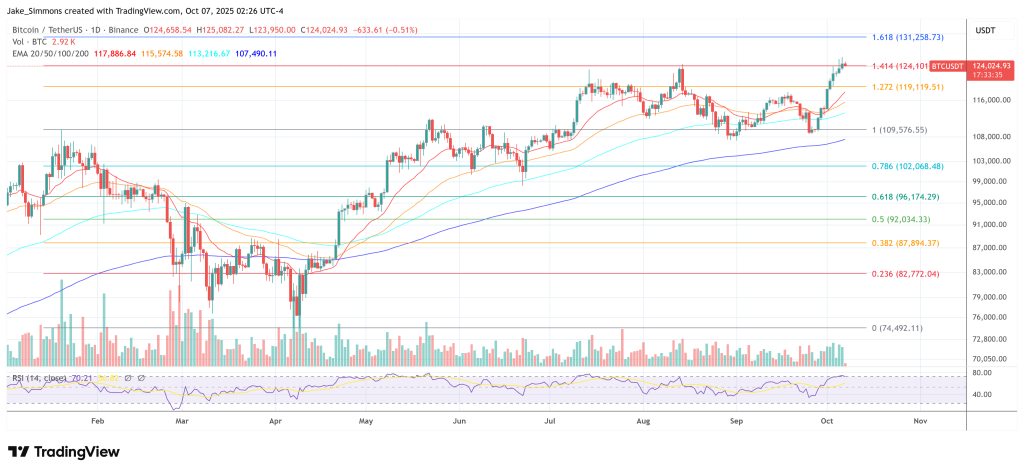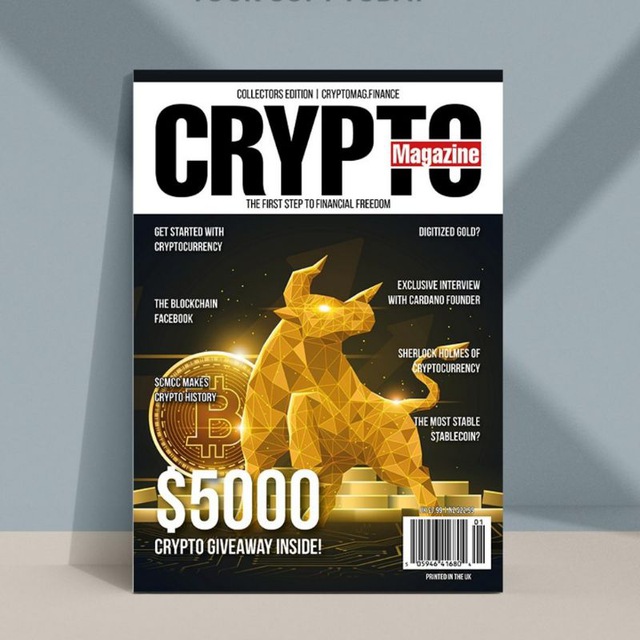Jeff Park, chief investment officer at ProCap BTC and an advisor to Bitwise, pushed back against Paul Tudor Jones’ latest warning that markets “feel exactly like 1999,” arguing that the macro regime of 2025 is structurally different from the dot-com era and, crucially, more supportive of Bitcoin. Park’s commentary followed Jones’ interview on CNBC, where the billionaire trader said the setup resembles the late-cycle blow-off that preceded the tech crash, even as he continued to praise Bitcoin as an asset with high appeal.
Bitcoin Will Thrive, Not Crash
In a X post, Park called comparisons to 1999 “lazy,” contending that the drivers of asset prices today are dominated by fiscal and monetary dynamics that bear little resemblance to the surplus-era, pre-QE backdrop of the late 1990s. “In 1999, markets were driven by private sector exuberance at a time with minimal fiscal drag—the US govt was actually running a budget surplus,” he wrote. “Today the markets are entirely influenced by massive fiscal spending and debt monetization as the US is obviously drowning in debt.” Park concluded flatly: “So no. To me it doesn’t ‘feel exactly like 1999’ at all. It feels like the opportunity of a lifetime for those who are prepared.”
Park contrasted the Federal Reserve’s present posture with that of the Greenspan Fed at the height of the dot-com boom. “In 1999, Fed was raising rates, balance sheet was small, and there was no QE. In 2025, rates are declining, the balance sheet is massive, and we have more acronyms than we can count,” he said, arguing that abundant liquidity—now more globally synchronized—has become the defining feature of this cycle. He added that with the US Treasury General Account refilled, the world is “about to embark on a global liquidity binge.”
He further emphasized the presence of powerful cross-border feedback loops that did not exist 25 years ago, pointing to policy transmission and supply-chain realignments that tether US risk assets to the global economy. Park cited Japan as an example of how overseas policy can amplify liquidity conditions, referencing pro-stimulus signals from incoming leadership. On Monday, Japanese equities surged after Sanae Takaichi won leadership of the ruling LDP on expectations of ongoing fiscal support—an event markets read as another nudge toward accommodation.
Park also drew a sharp distinction between the late-1990s dollar cycle and today’s macro hedging behavior, arguing that, unlike in 2000–2002, gold is now “literally on a tear with every sovereign actor playing the board.” On the day of his remarks, spot gold printed fresh all-time highs above $3,900 per ounce, a move widely attributed to safe-haven demand and expectations of further US rate cuts—context that underscores Park’s point about the current reflex to hard assets.
Where Jones sees echoes of exuberance that could end badly, Park sees a regime that channels liquidity into scarce, non-sovereign assets—bitcoin foremost among them. He argued that “in 1999 there was no bitcoin, social media, nor smartphones. In 2025, everyone around the world has an escape valve in their pocket,” a line that cuts to Bitcoin’s structural difference from dot-com equities: bearer settlement, programmatic issuance, and a growing base of global distribution that can be mobilized in real time.
Paul Tudor Jones On Bitcoin
Jones’ own stance on Bitcoin remains constructive even as he warns of a frothy tape. In his CNBC appearance, he said the environment “feels exactly like 1999,” invoking the Nasdaq’s parabolic move into March 2000, but he also reiterated the asset’s appeal—continuing a years-long thread in which he has described bitcoin as a powerful inflation hedge and “one of the fastest horses.” The split-screen—macro caution on equities, optimism on bitcoin—helped catalyze Park’s rebuttal that this cycle is “built for Bitcoin, not bubbles.”
Notably, Park’s argument neither denies the possibility of sharp drawdowns nor guarantees a unidirectional path. Rather, it hinges on the composition of liquidity, the nature of fiscal dominance, and the behavior of hard-asset hedges in an era of heavy sovereign balance sheets. Gold’s concurrent breakout, Japan’s policy bias toward stimulus, and investors’ hunt for non-dilutive stores of value all feed his core contention that 2025’s setup “is nothing like 1999”—and that Bitcoin, more than the dot-com darlings of yesteryear, is positioned to be the principal beneficiary.
At press time, Bitcoin traded at $124,024.




